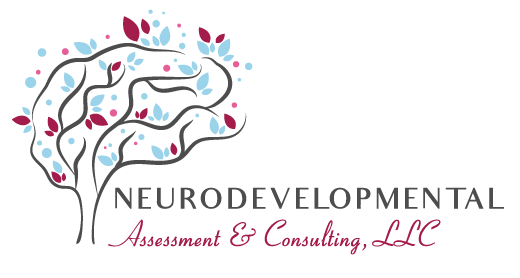Parents of children with special needs or those facing behavioral or emotional challenges are often told to have their children “evaluated.” Similarly, adults with learning differences or challenges, neurological injuries or illnesses, or behavioral and emotional concerns may be told to get an “evaluation.” But what will an evaluation tell you about your child (or yourself)? And when should you consider an evaluation for yourself or your child?
First and foremost, a psychoeducational or neuropsychological evaluation will help to determine whether there is a diagnosis that accounts for the difficulties the child is experiencing. A diagnosis can be helpful in identifying the nature of the problem, and suggesting possible helpful interventions, accommodations, or modifications. It can be a quick way of capturing what a child, adolescent, or adult is experiencing. Additionally, a diagnosis is often required for eligibility to certain types of programs and services, such as special education, behavioral/emotional services, or medical interventions. However, diagnostic labels are often limited. They tend to describe conditions and disorders in broad strokes, rather than the specific ways they are affecting a particular individual. They do not identify what cognitive, emotional, behavioral, and environmental factors have contributed to the development or maintenance of the condition. They also do not describe the individual’s unique pattern of strengths and weaknesses. Comprehensive psychoeducational and neuropsychological evaluations are individualized, and help to provide a thorough understanding of the individual being assessed. By understanding why an individual is having difficulties, how to help becomes clearer. Therefore, this in-depth understanding of the individual can help those providing treatment to be more targeted and specific in their interventions, and to choose interventions that are more likely to be effective.
Because they are more comprehensive, individualized, and in-depth, psychoeducational and neuropsychological evaluations can be useful in a number of circumstances. Some examples of situations where an evaluation may be helpful are listed below. This list is not all-inclusive; rather, it is designed to provide some common examples where evaluations may be useful:
- The person is having difficulties in learning, memory, executive functioning, attention, behavior, and/or emotional functioning.
- The person is suspected of having a specific condition (such as an autism spectrum disorder or learning disability), and testing is required to determine whether the disorder is present.
- The person has shown a significant change in mood, behavior, or learning. These changes may suggest the onset of a condition in those without a history of difficulties. They may also suggest the onset of an additional condition, ineffectiveness of interventions, a change in course or severity, or an incorrect initial diagnosis in those who have been previously identified and evaluated.
- The person has not responded to standard treatment or research-based educational interventions.
- The child requires special education or related services.
- An adolescent or adult requires accommodations or modifications in a college or job training program, standardized testing situation, or in an employment setting.
- The person was previously evaluated, but the evaluation was not comprehensive, inadequate, or invalid.
In general, evaluations may be repeated every 2–3 years for children/adolescents in order to assess progress and update treatment recommendations. In some cases, re-evaluations may be unnecessary, especially if the condition has resolved and the person is no longer experiencing any difficulties. However, re-evaluations should be completed in shorter intervals if there is a major change in functioning, if the person has not responded to treatment or treatment has stalled, or if the person has a condition that is known to cause progressive deterioration in functioning.

